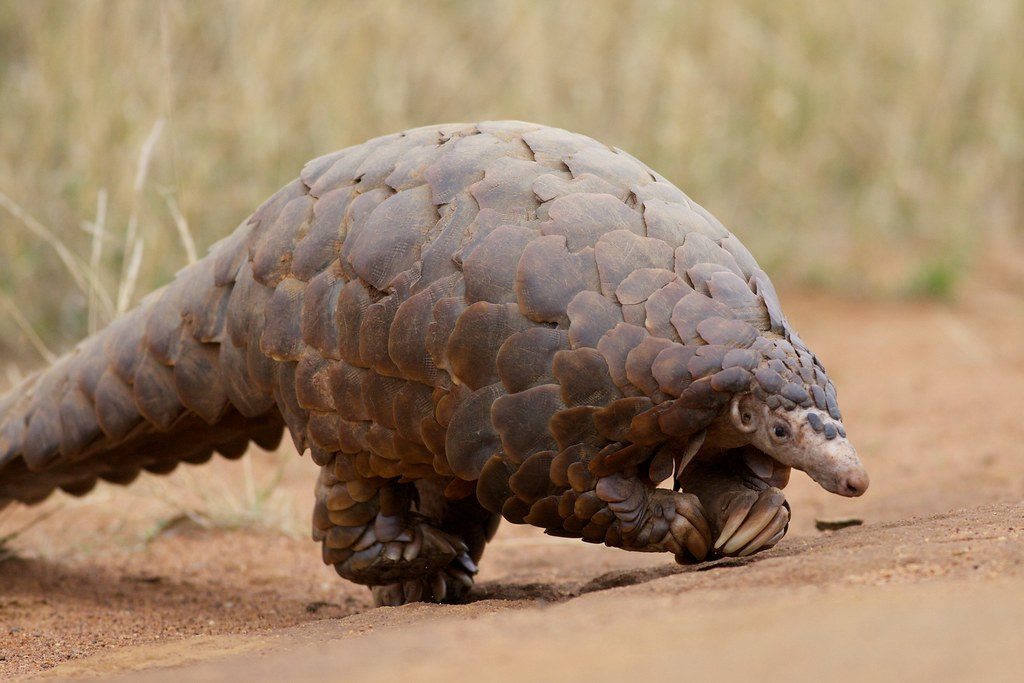In June 2019, members of the Philippine Marines stayed in the Southern Palawan forests as they vowed to do help save the pangolin, claiming they are harder to find than rebels.

Ground Pangolin at Madikwe Game Reserve in South Africa.
“It’s easier to find rebels in these mountains than pangolins,” said Marine Sgt. Darwin Balutan.
Working with the Palawan Council for Sustainable Development is the Protect Wildlife Project of the United States Agency for International Development (USAid) and Katala Foundation whose main goal is to protect the threatened Pangolin species in Palawan.
Pangolin scales are believed to have mystical powers but in reality, the scales are made of keratin. An expert on the Philippine pangolin, Sabin Schoppe shared: “No one pays for powdered fingernails, but traditional Chinese medicine believers spend a fortune for powdered pangolin scales, which are no different.”
The pangolin is characterized as the most illegally trafficked mammals on Earth and is caught for traditional Chinese medicine which they are now facing extinction due to the illegal wildlife trade.
“The illegal wildlife trade is run by organized syndicates with their own systems for capturing and smuggling pangolins, so we must tighten security,” lawyer Edward Lorenzo, USAid’s Protect Wildlife crime prevention advisor, said.
A Chinese poaching vessel that bumped into the Philippines in 2013 at Tubbataha Reefs was found carrying 2,870 dead pangolins.
ASEAN Center for Biodiversity’s executive director Mundita Lim said: “DNA tests conducted on the pangolins confiscated off Tubbataha in 2013 revealed they came not just from Palawan, but Cambodia, Indonesia, Malaysia, and Vietnam. This proves that illegal traders source their contraband from all over Southeast Asia.”
What do you think of this story? Share your thoughts with us in the comments section below!




